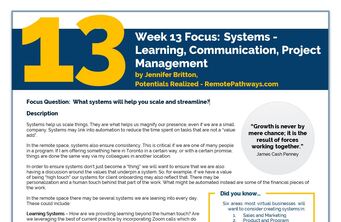 Focus Question: What systems will help you scale and streamline? Description Systems help us scale things. They are what helps us magnify our presence, even if we are a small company. Systems may link into automation to reduce the time spent on tasks that are not a “value add”. In the remote space, systems also ensure consistency. This is critical if we are one of many people in a program. If I am offering something here in Toronto in a certain way, or with a certain promise, things are done the same way via my colleagues in another location. In order to ensure systems don’t just become a “thing” we will want to ensure that we are also having a discussion around the values that underpin a system. So, for example, if we have a value of being “high touch” our systems for client onboarding may also reflect that. There may be personalization and a human touch behind that part of the work. What might be automated instead are some of the financial pieces of the work. 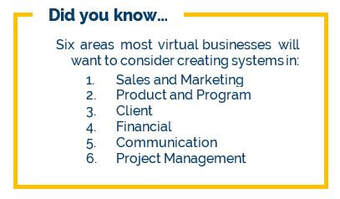 In the remote space there may be several systems we are leaning into every day. These could include: Learning Systems – How are we providing learning beyond the human touch? Are we leveraging the best of current practice by incorporating Zoom calls which do get recorded if people can’t make them? Are we creating a Learning Management System where people can go to access information and on-demand learning modules? Popular learning systems include Teachable, Kajabi, Thinkific to name a few. Corporations will have their own learning management systems. Project Management Systems – Projects are at the heart of most small businesses. From courses we want to create to marketing initiatives, there are many different ways we can focus on scaling. Popular project management systems include Trello, Asana, Monday.com. Communication is at the heart of any remote team or business. What are you doing to ensure that you are leveraging all the communication elements you want? This may include: Chat based systems; video-based meeting platforms like Zoom; or voice related apps like WhatsApp and Voxerr (where you can leave a voice message), or LOOM (where you can leave a video message). What are the systems you want to leverage so you can accelerate your work and take it to the next level?  Activity Think about these four areas of work – learning, project management, financial and communication. What new additions could you add to help amplify your efforts? For more on this topic check out: Section 3 of PlanDoTrack All the best, Jennifer Jennifer Britton
Co-host of the Remote Pathways Podcast Potentials Realized – Coaching, Training and Consulting Services for remote teams, leaders and professionals Check out the most recent Remote Pathways Podcast Episode, where we explore the people, places and processes of exceptional remote work. You can listen to the latest episode here, or on your favorite podcast player.
0 Comments
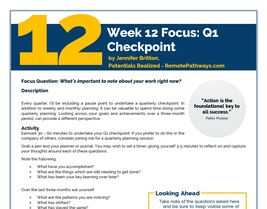 Focus Question: What’s important to note about your work right now? Description Every quarter, I’ll be including a pause point to undertake a quarterly checkpoint. In addition to weekly and monthly planning, it can be valuable to spend time doing some quarterly planning. Looking across your goals and achievements over a three-month period, can provide a different perspective. 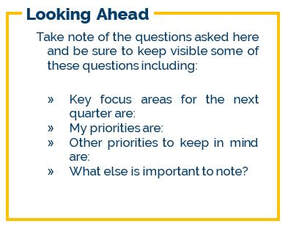 Activity Earmark 30 – 60 minutes to undertake your Q1 checkpoint. If you prefer to do this in the company of others, consider joining me for a quarterly planning session. Grab a pen and your planner or journal. You may wish to set a timer, giving yourself 3-5 minutes to reflect on and capture your thoughts around each of these questions. Note the following:
Over the last three months ask yourself:
Note your programming and/or services deliver. Ask yourself:
For more on this topic check out: PlanDoTrack – Quarterly Planning Section Remote Pathways New Guide – Quarterly Checkpoint (Day 30) Enjoy your reflections! Jennifer Jennifer Britton
Co-host of the Remote Pathways Podcast Potentials Realized – Coaching, Training and Consulting Services for remote teams, leaders and professionals Check out the most recent Remote Pathways Podcast Episode, where we explore the people, places and processes of exceptional remote work. You can listen to the latest episode here, or on your favorite podcast player. 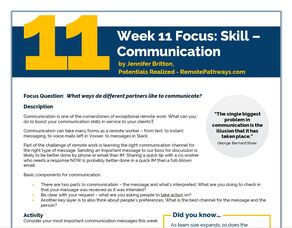 Focus Question: What ways do different partners like to communicate? Description Communication is one of the cornerstones of exceptional remote work. What can you do to boost your communication skills in service to your clients? Communication can take many forms as a remote worker – from text, to instant messaging, to voice mails left in Voxxer, to messages in Slack. Part of the challenge of remote work is learning the right communication channel for the right type of message. Sending an important message to our boss for discussion is likely to be better done by phone or email than IM. Sharing a quick tip with a co-worker who needs a response NOW is probably better done in a quick IM than a full-blown email. Basic components for communication:
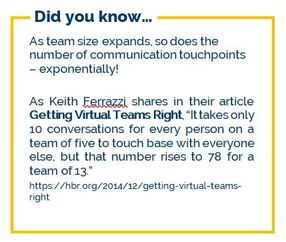 Activity Consider your most important communication messages this week. Ask yourself:
For more on this topic check out: Communication in general is the main focus of my 2017 book, Effective Virtual Conversations. Be sure to read the relevant chapters – for example, chapters 9 – 11 if you are a virtual or remote team, or Best, Jennifer Jennifer Britton
Co-host of the Remote Pathways Podcast Potentials Realized – Coaching, Training and Consulting Services for remote teams, leaders and professionals Check out the most recent Remote Pathways Podcast Episode, where we explore the people, places and processes of exceptional remote work. You can listen to the latest episode here, or on your favorite podcast player. 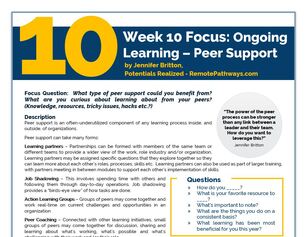 Focus Question: What type of peer support could you benefit from? What are you curious about learning about from your peers? (Knowledge, resources, tricky issues, hacks etc.?) Description Peer support is an often-underutilized component of any learning process inside, and outside, of organizations. Peer support can take many forms: Learning partners – Partnerships can be formed with members of the same team or different teams to provide a wider view of the work, role industry and/or organization, Learning partners may be assigned specific questions that they explore together so they can learn more about each other’s roles, processes, skills etc. Learning partners can also be used as part of larger training, with partners meeting in between modules to support each other’s implementation of skills. Job Shadowing – This involves spending time with others and following them through day-to-day operations. Job shadowing provides a “birds-eye view” of how tasks are done. Action Learning Groups – Groups of peers may come together and work real-time on current challenges and opportunities in an organization. Peer Coaching – Connected with other learning initiatives, small groups of peers may come together for discussion, sharing and learning about what’s working, what’s possible and what’s challenging with their work and/or their role. What else might be possible? 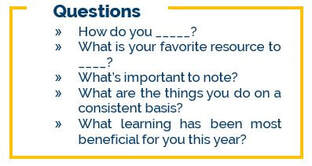 Activity Consider the different opportunities you have in place for more peer learning and support. What are the things you are curious about?
PlanDoTrack – Quarterly Planning Section and related questions. Effective Virtual Conversations – chapters on peer learning. Wishing you the best, Jennifer Jennifer Britton
Co-host of the Remote Pathways Podcast Potentials Realized – Coaching, Training and Consulting Services for remote teams, leaders and professionals Check out the most recent Remote Pathways Podcast Episode, where we explore the people, places and processes of exceptional remote work. You can listen to the latest episode here, or on your favorite podcast player. 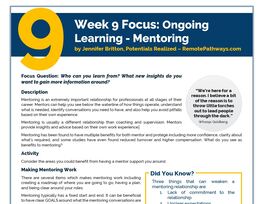 Focus Question: Who can you learn from? What new insights do you want to gain more information around? Description Mentoring is an extremely important relationship for professionals at all stages of their career. Mentors can help you see below the waterline of how things operate, understand what is needed, identify conversations you need to have, and also help you avoid pitfalls based on their own experience. Mentoring is usually a different relationship than coaching and supervision. Mentors provide insights and advice based on their own work experience. Mentoring has been found to have multiple benefits for both mentor and protégé including more confidence, clarity about what’s required, and some studies have even found reduced turnover and higher compensation. What do you see as benefits to mentoring? 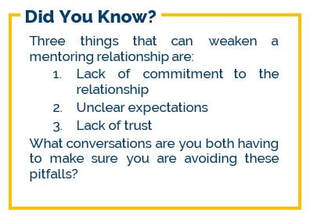 Activity Consider the areas you could benefit from having a mentor support you around. Making Mentoring Work There are several items which makes mentoring work including creating a roadmap of where you are going to go, having a plan, and being clear around your roles. Mentoring typically has a fixed start and end. It can be beneficial to have clear GOALS around what the mentoring conversations are going to cover. Consider creating consistent meetings and a timeline or roadmap of where you are going. Finally, it should be clear who is setting the meeting agenda, and what you want to accomplish in each conversation. Be sure that you are clear on the roles the mentor and mentee or protégé will play. Mentors can provide an important “inside track” of how things really get done in an organization or industry. They may also be someone you can take tricky issues to or seek alternative perspectives around. While mentoring used to be seen as something only seasoned professionals offered, today the concept of “Reverse Mentoring” has taken root. Younger proteges are often teaching seasoned mentors’ key elements around new ways of working, technology and other topics. This serves to ensure that there really is a beneficial two-way relationship. For more on this: Check out sections 2 and 4 questions around Collaboration in both PlanDoTrack and Coaching Business Builder. These sections will provide you with possible questions you will want to ask in establishing your mentoring relationship. There are also multiple blog posts on the topic of mentoring over at the Teams365 blog at PotentialsRealized.com. All the best, Jennifer Check out the most recent Remote Pathways Podcast Episode which covers the topic of Strengths. You can listen to Episode 8 here, or on your favorite podcast player.
|
AuthorThe Remote Pathways blog follows many of the themes we explore in the Remote Pathways Podcast. This year (2020) we're proud to bring you a 52 week-series for you to follow along throughout the year. Posts are penned by co-host Jennifer Britton, an avid award-winning blogger for many years. Jennifer is the author of five books. Visit her author page on Amazon. Archives
December 2020
Categories
All
|
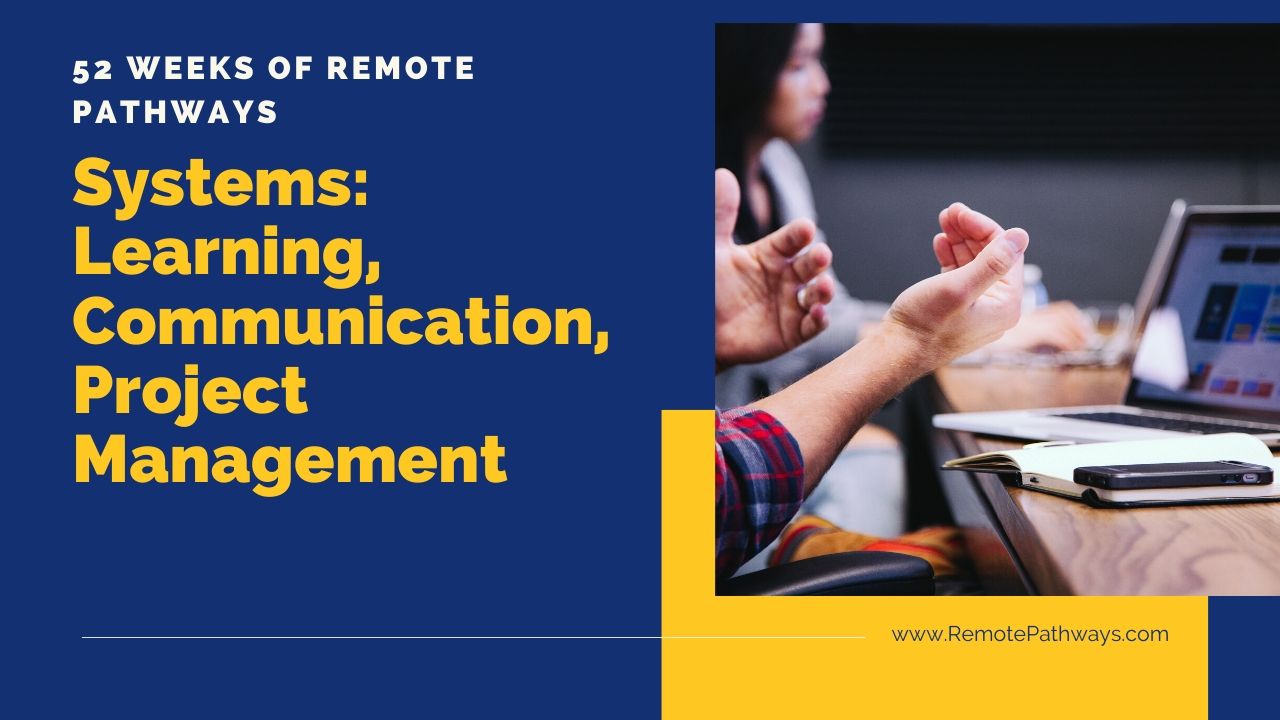
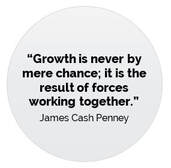
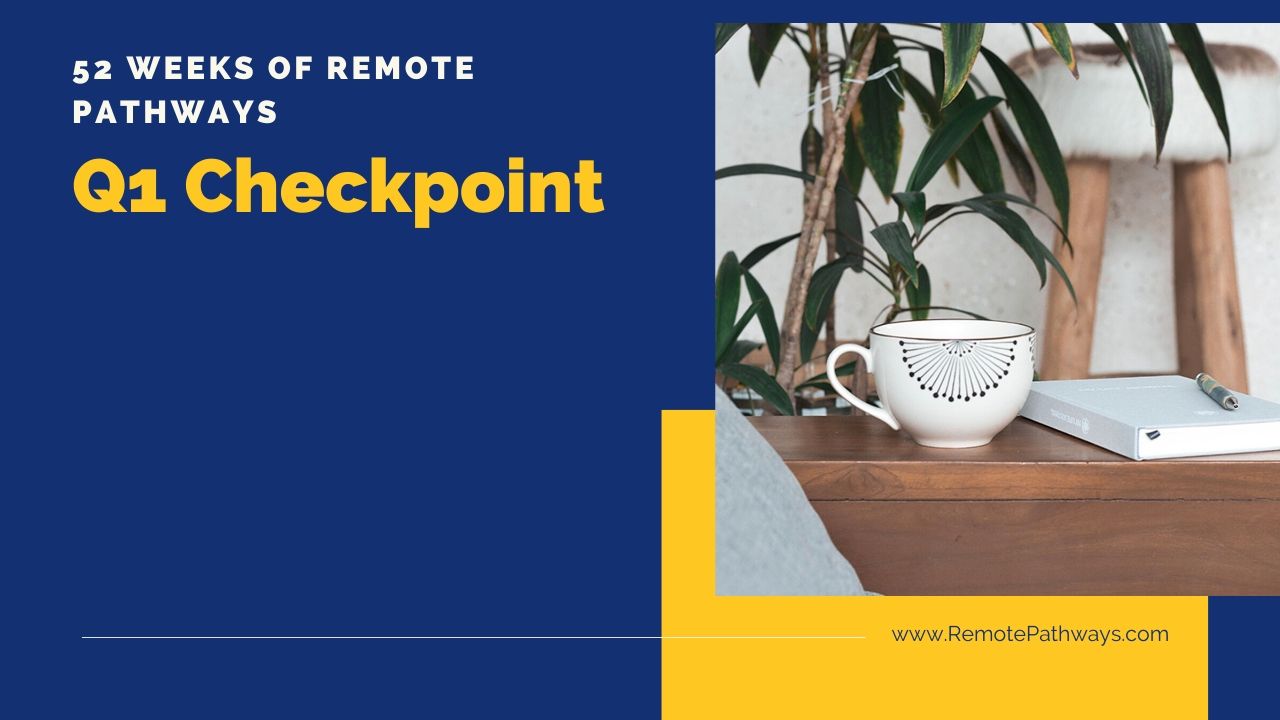
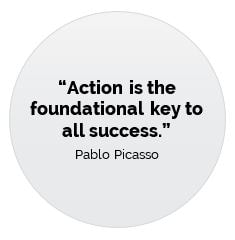
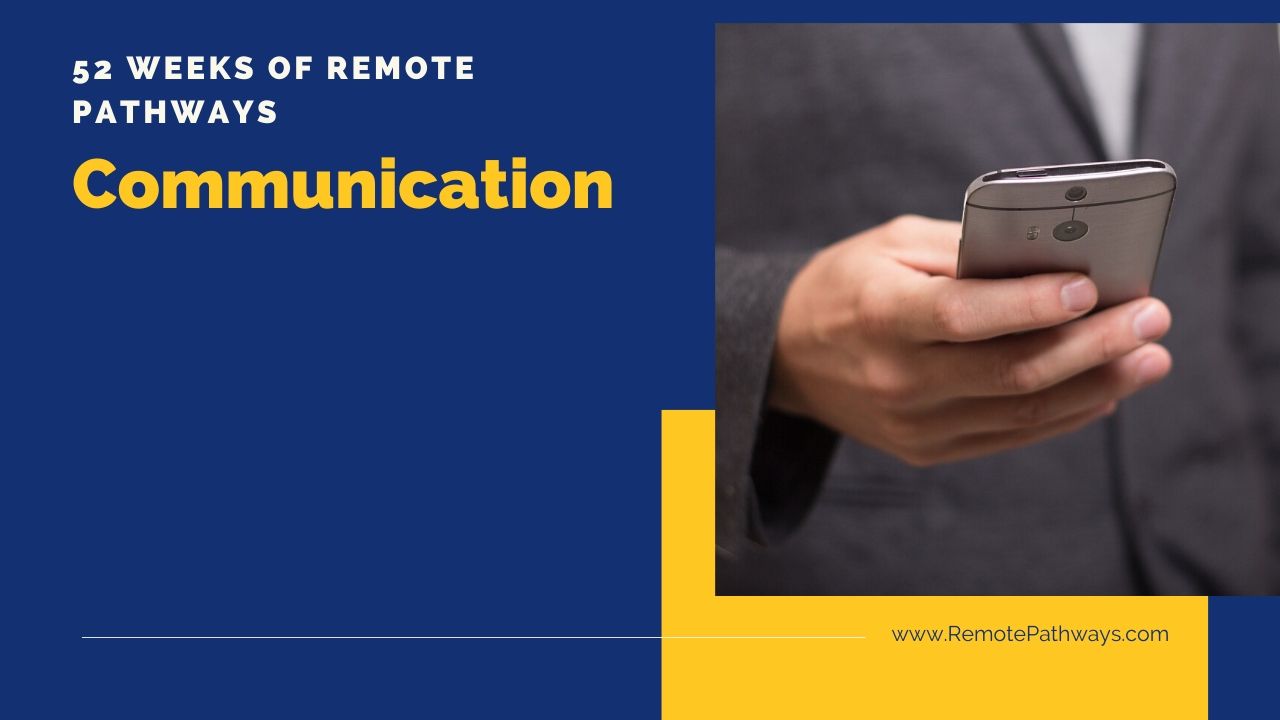
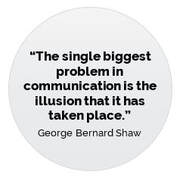
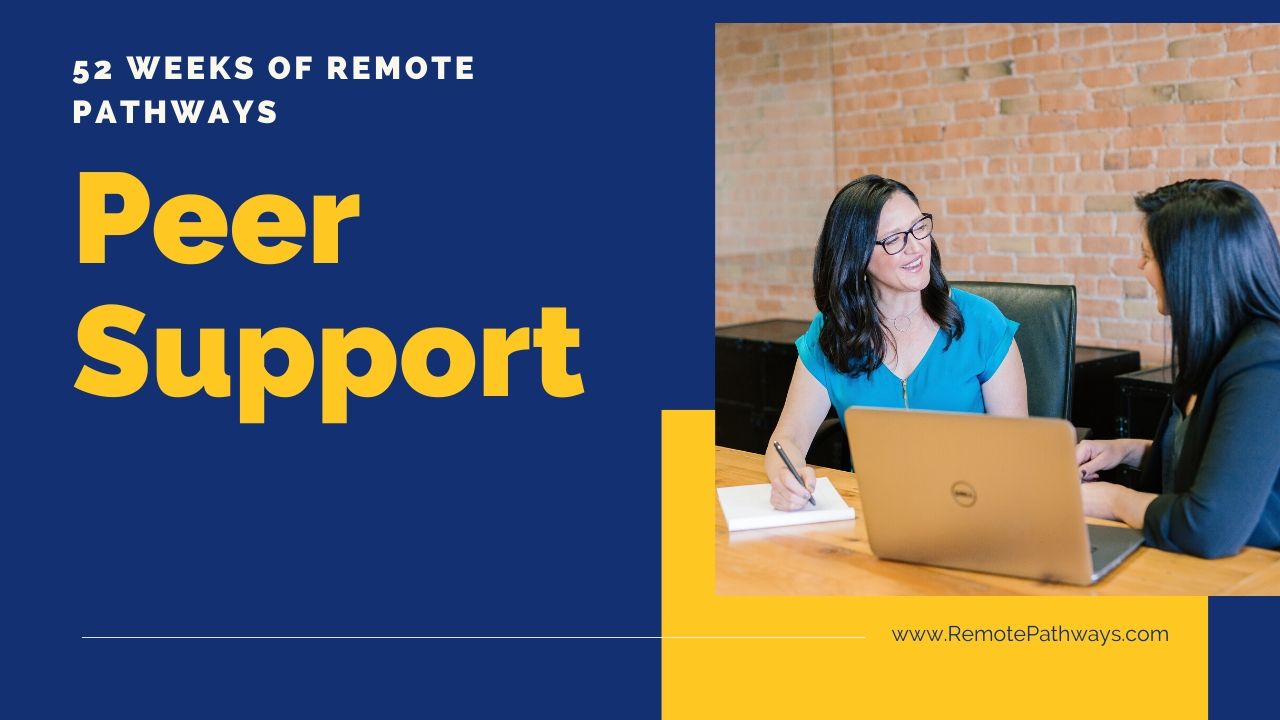
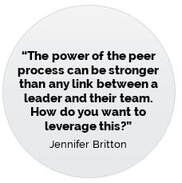
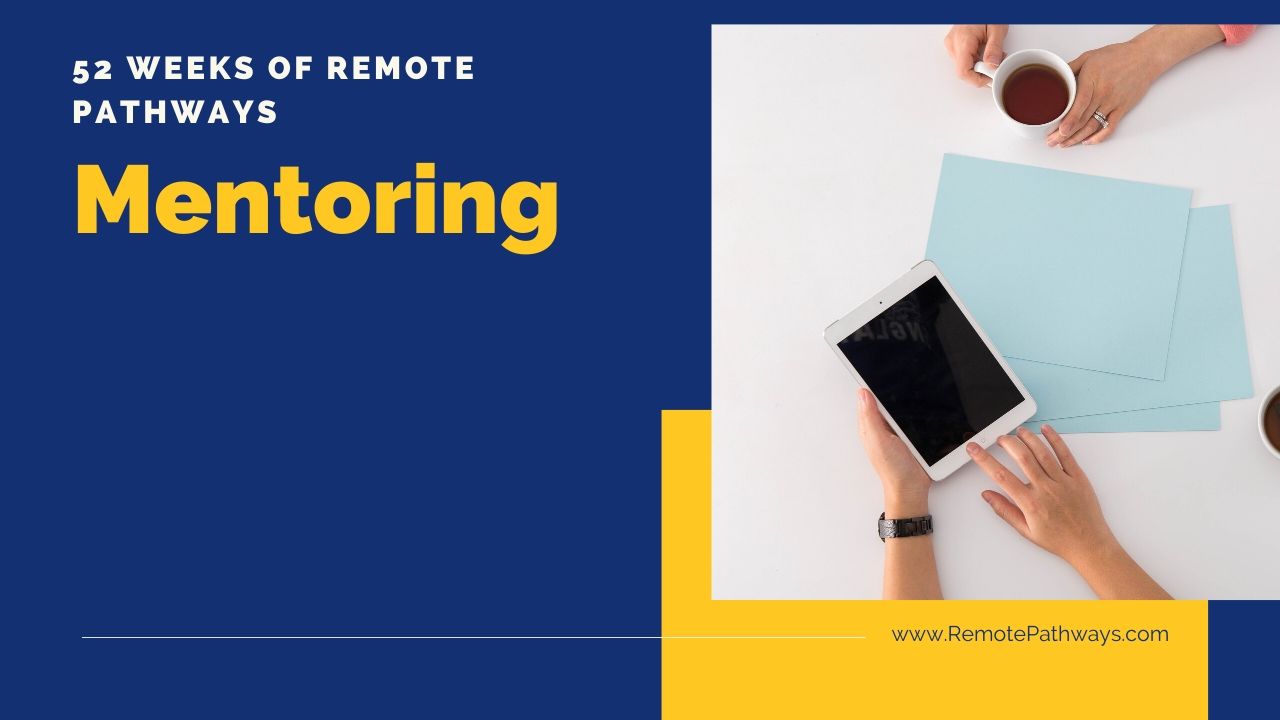

 RSS Feed
RSS Feed